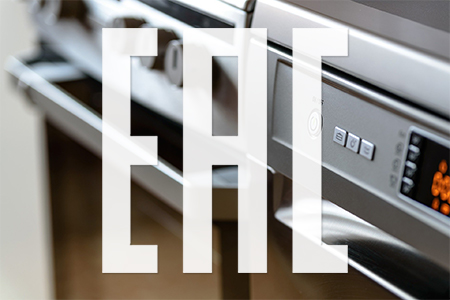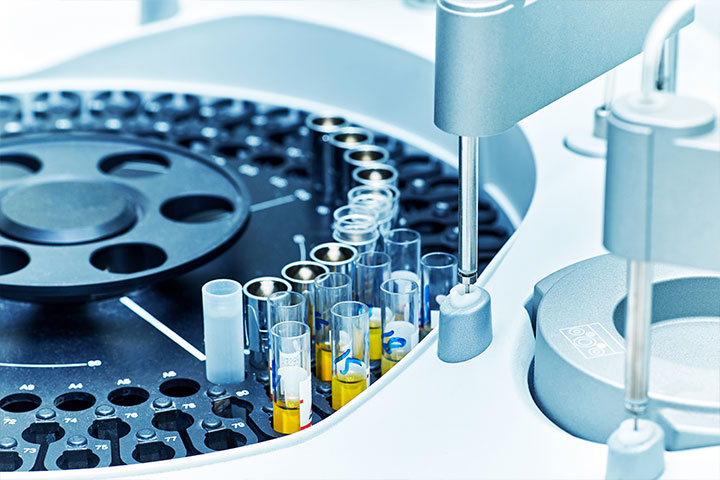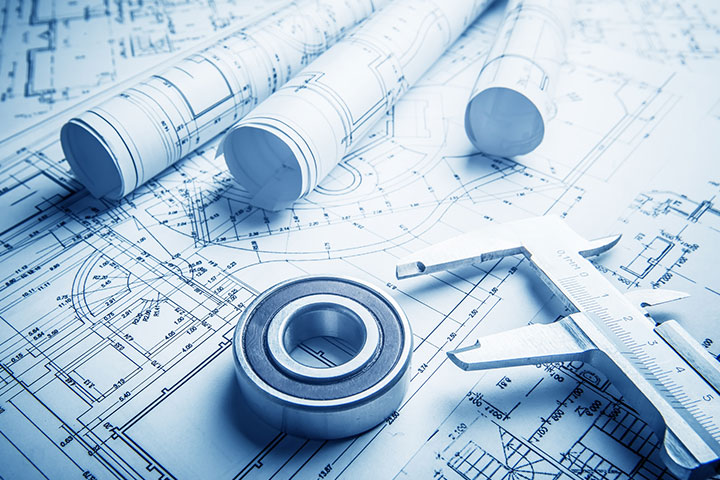
The technical regulations TR EAEU 048/2019 The requirements for the energy efficiency of energy-consuming devices were developed to ensure energy efficiency and resource conservation within the framework of the EAEU. The regulations define requirements for energy-consuming devices with regard to their energy efficiency.
Adopted: 08. August 2019
Entry into force: 1. September 2022
Scope of application of TR EAEU 048/2019
The rules apply to energy-consuming devices such as:
- refrigerators
- induction electric motors
- TV sets
- electrical household and office equipment in standby mode and when switched off
- household washing machines
- household dishwashers
- set-top boxes
- electric lamps
- external power supplies
- circulating
- electric fans
- fluorescent lamps without integrated ballasts, high-pressure discharge lamps, ballasts and lights for such lamps
- directional lights, LED lamps and related equipment
- drum drying machines
- vacuum cleaner
- computer and server
- water pumps
- air conditioners and indoor fans
Conformity assessment process
Energy-consuming devices may only be sold on the EAEU market if they meet the requirements of these regulations and the requirements of other technical regulations:
- TR CU 004/2011 On safety of low-voltage equipment
- TR CU 020/2011 On electromagnetic compatibility
- TR EAEU 037/2016 On restriction of the use of certain hazardous substances in electrical and electronic equipment
The conformity assessment of devices with the requirements of the technical regulations takes place in the form of EAC certification or EAC declaration.
At the manufacturer's request, the EAC certificate can be replaced instead of the EAC declaration.
The EAC certification according to TR EAEU 048/2019 are subject to:
- Electric lamps
- Fluorescent lamps without integrated ballasts, high-pressure discharge lamps, ballasts and lights for such lamps
- Directional lights, LED lamps and related equipment
- Computer and server
There are different certification and declaration schemes.
EAC certification: scheme 1c is used for series delivery, scheme 3c for batch delivery, scheme 4c for one-time delivery.
EAC declaration: Schemes 1d, 3d and 6d are used for a series delivery, for batch delivery or one-off delivery - schemes 2d and 4d.
The confirmation of conformity is carried out exclusively by a certification body registered and accredited in the uniform register of the Union's conformity assessment bodies. The test is carried out in an accredited test laboratory.
The EAC declaration according to scheme 1d or 2d is issued on the basis of your own evidence.
The EAC declaration according to schemes 3d, 4d and 6d is carried out by the applicant on the basis of his own evidence and test results from the test laboratory.
Accompanying documents
The accompanying documents must be written in Russian or in the national language of the EAEU member state and contain:
- operation manual (with information: intended use, mains connection, device properties, date of manufacture)
- reviews
- technical data sheet (a document with information on the functional properties and characteristics of the device in relation to its energy efficiency)
- mark with the energy efficiency class
The energy efficiency class is defined for each device in appendices 2-19 of TR EAEU 048/2019.
EAC marking

The products whose conformity with the requirements of TR EAWU 048/2019 has been confirmed may be provided with the EAC mark of the Eurasian Economic Union. The placing on the market of products without appropriate mark can be punished with a fine and with a seizure.
Period of validity of the EAC certificate
The certificate or declaration for series production is valid for 5 years; for batches or individual deliveries, the term is unlimited.



















































